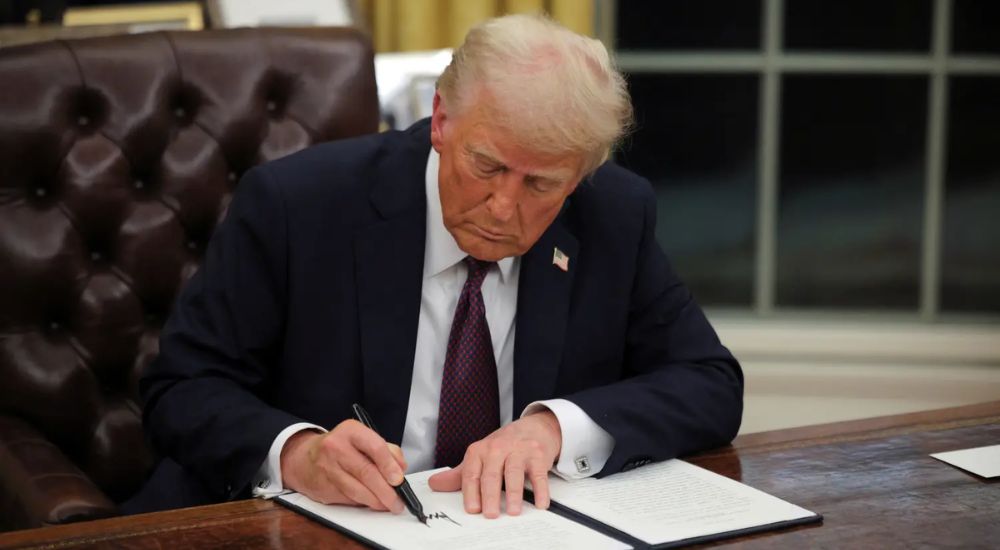U.S Tariffs: EU To Prioritise Negotiations Over Retaliation

The European Union (EU) on Monday announced that it will begin imposing retaliatory tariffs on selected U.S. imports starting next week, but said that its primary focus remains on negotiating with the U.S. to roll back the tariffs imposed by U.S. President Donald Trump.
The decision followed a meeting of EU trade ministers in Luxembourg, where officials discussed strategies to address the escalating trade tensions with the U.S. and broader trade relations with China.
Ministers agreed that opening dialogue with the U.S. was a priority to avoid a full-scale trade war.
Under Trump’s trade policy, the U.S. is imposing 25 per cent tariffs on EU steel, aluminium, and automobiles, along with 20 per cent reciprocal tariffs on a wide range of other goods.
The EU, on its part, has responded by preparing a two-phase plan of retaliatory duties, with the first round taking effect on April 15 and a second wave expected on May 15.
“We must respond firmly, but in a way that avoids further escalation,” said Dutch Trade Minister Reinette Klever.
“We’ll take countermeasures if necessary, but the goal is to bring the U.S. to the negotiating table,” she added.
Earlier, European Commission President Ursula von der Leyen said the EU is open to a “zero-for-zero” industrial tariff agreement.
EU Trade Commissioner Maros Sefcovic agreed with her statement, stating that the bloc prefers a diplomatic solution but is fully prepared to defend its interests if talks fail.
According to Reuters, one potential move includes invoking the EU’s Anti-Coercion Instrument (ACI), which would enable the EU to limit U.S. access to public procurement or target American services. However, several member states continue to express caution about taking aggressive steps.
Ireland’s Foreign Minister Simon Harris called the ACI a “nuclear option” and urged caution, noting that many EU nations aren’t ready to take that step yet.
Germany’s outgoing economy minister, Robert Habeck, stressed that unity within the EU would be its greatest strength, noting that market volatility already reflects the risk of further escalation.
“The damage could worsen if we escalate. The U.S. is not in a strong position right now,” Habeck said, pointing to Elon Musk’s public support for zero tariffs as a sign that American businesses also seek de-escalation.
Meanwhile, the EU is expected to approve an initial set of countermeasures this week targeting up to $28bn in U.S. goods, including products like dental floss and diamonds, specifically in response to steel and aluminium duties.
Meanwhile, Trump has threatened a 200 per cent retaliatory tariff on EU alcoholic beverages if the bloc proceeds with a 50 per cent duty on U.S. bourbon.
U.S Tariffs: EU To Prioritise Negotiations Over Retaliation is first published on The Whistler Newspaper





